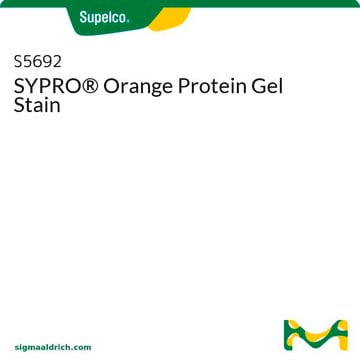B2025
Brilliant Blue G - Colloidal Concentrate
About This Item
Productos recomendados
form
solution
storage temp.
room temp
General description
Application
- protein fragments post in vitro pepsin digestion
- ovarian tumor fluid proteome prior to profiling
- the transcription factor (TFIID) complex from Saccharomyces cerevisiae
Reconstitution
Analysis Note
Related product
signalword
Warning
hcodes
Hazard Classifications
Eye Irrit. 2 - Met. Corr. 1 - Skin Irrit. 2
Storage Class
8B - Non-combustible corrosive hazardous materials
wgk_germany
WGK 2
flash_point_f
Not applicable
flash_point_c
Not applicable
Certificados de análisis (COA)
Busque Certificados de análisis (COA) introduciendo el número de lote del producto. Los números de lote se encuentran en la etiqueta del producto después de las palabras «Lot» o «Batch»
¿Ya tiene este producto?
Encuentre la documentación para los productos que ha comprado recientemente en la Biblioteca de documentos.
Los clientes también vieron
Protocolos
Brilliant Blue G-Colloidal Concentrate stains proteins in IEF, PAGE, and SDS-PAGE gels after electrophoresis, enhancing sensitivity with protein fixation.
Nuestro equipo de científicos tiene experiencia en todas las áreas de investigación: Ciencias de la vida, Ciencia de los materiales, Síntesis química, Cromatografía, Analítica y muchas otras.
Póngase en contacto con el Servicio técnico









